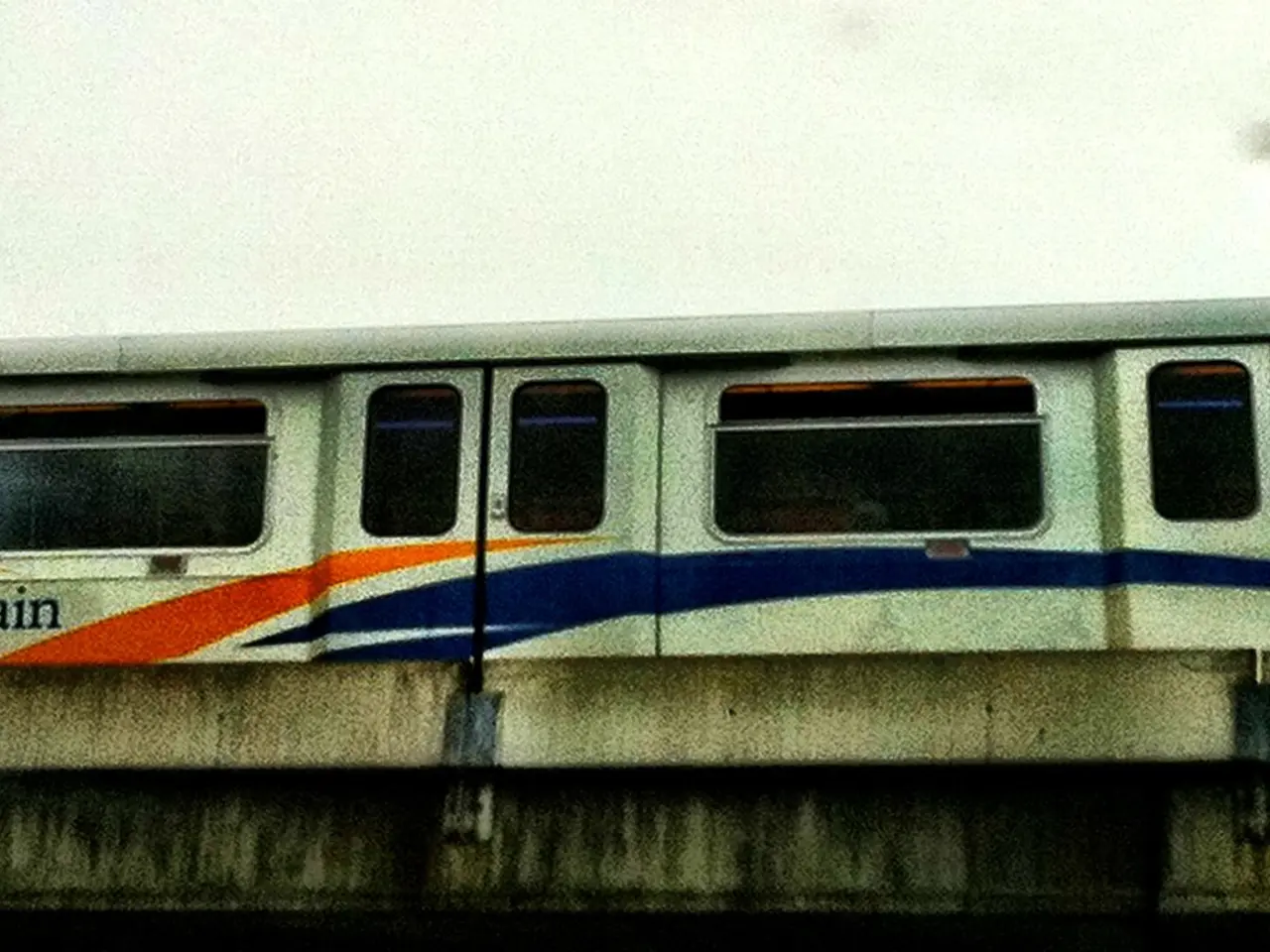The Long, Disruptive Journey: Upgrading the Freight Rail Corridor Between Oberhausen and Emmerich
Nine-week interruption in train service: Railway work ongoing at Lower Rhine region - Disrupted Commuting for Nine Weeks due to Railway Construction on the Lower Rhine
For rail commuters in the Lower Rhine region, the next couple of weeks promise more inconvenience. The railway is pressing ahead with one of its largest projects in Germany, shutting down the route between Oberhausen and Emmerich for another nine weeks. This disruption affects not just passenger commutes but also industry and long-distance traffic along the vital freight route. The reconstruction work is part of a prestigious project for European freight traffic.
Why this route undergoing such extensive renovation?
The approximately 73-kilometer stretch in the Lower Rhine area forms part of the European freight corridor from the North Sea port of Rotterdam to Genoa on the Mediterranean. In the 1990s, the participating countries of Germany, the Netherlands, Switzerland, and Italy agreed to upgrade and modernize this route, connecting crucial economic centers by rail to major seaports.
The route, which was only double-track until then with outdated technology, has long since reached its capacity limit. The Netherlands completed their section in 2007: the 160-kilometer-long Betuwe Line from Rotterdam to the German border is recognized as one of the most modern freight routes worldwide.
What progress has been made on the German side?
Construction commenced in November 2024 and the route has been either fully or partially closed for 80 weeks since then. The plan is to construct a third track throughout the entire route. In the Lower Rhine area alone, 47 bridges are set for replacement, and 38 additional bridges will be built for this purpose. The first groundbreaking ceremony occurred as early as January 2017, but some permits were still outstanding. Even after the 80-week construction phase ends in 2026, work on the route will continue for many years to come.
Why is the work taking so long?
According to Deutsche Bahn, a significant challenge for engineers and construction workers is the crossing of the Wesel-Datteln Canal. The existing bridge must not only be substantially wider but also 1.5 meters higher to allow for the passage of the ever-larger ships on the federal waterway.
Due to the inability of heavy freight trains to handle steep gradients, the tracks must be adapted to the new elevation level on a total of three kilometers between Voerde and Wesel. For this reason, other bridges, overhead wires, and even a station will need to be raised as well.
What restrictions can rail passengers expect?
In the coming nine weeks, ICE trains from the Rhineland to the Netherlands will be rerouted and, as a result, will take longer than usual. Regional traffic passengers on lines RE5, RE8, RE13, RE19, and RE49 will have to accept detours or make do with replacement buses. From August 25, at least, the route should be usable again with a single track.
What implications does the closure have for the economy?
Industries in the region are unable to manage their logistics via freight trains during the route closure. This presents particular challenges for the manufacturing and chemical industries in the area, as not all goods can easily be switched to trucks. In the long term, however, the connection to the essential freight route is considered beneficial for the regional economy.
What other major projects are planned by the railway in NRW?
The railway is modernizing its nationwide track network by 2035, a process they refer to as a complete overhaul. Around ten significant projects involve railways in North Rhine-Westphalia. In 2026, the renovation of the Hagen-Wuppertal-Cologne line is projected for extensive improvements, scheduled for work from February 6 to July 10. This critical route will be closed to long-distance traffic altogether for these five months, and S-Bahn services will also see significant reductions.
In 2028, work on the Hagen-Unna-Hamm line is slated to begin, while the Aachen-Cologne line is due for upgrades in 2029.
Insights:
- The project aims to enhance the freight capacity and efficiency of the existing railway infrastructure by expanding tracks, enhancing electrification, and possibly installing advanced train control systems like ETCS.
- Completion of this specific route upgrade between Oberhausen and Emmerich is likely within the next few years, with other rail projects in Germany scheduled or expected around 2025-2027.
- Direct benefits for commuter services may be limited, but delays caused by mixed traffic congestion could reduce indirectly, resulting in improved reliability for both passenger and freight rail services.
- The upgrade will substantially benefit industries reliant on rail logistics in the Lower Rhine region, reducing road congestion and environmental impact in this economically vital area of Europe.
The extensive renovation of the freight rail corridor between Oberhausen and Emmerich is part of a larger European project to connect key economic centers to major seaports, including industry-focused areas in the Lower Rhine region. The reconstruction work, which includes building a third track and replacing several bridges, highlights the commitment to improve vocational training opportunities in transportation and finance industries, as modernized infrastructure boosts employment and stimulates economic growth.
The completion of this upgraded freight route will ease the struggle for industries in the region by providing more efficient logistics solutions, ultimately gearing them towards success in the competitive global market. With continued advancements in rail infrastructure projects throughout Germany, particularly in North Rhine-Westphalia, the future of transportation and finance industries looks promising.




